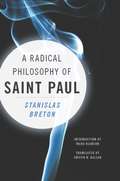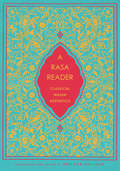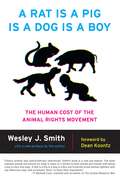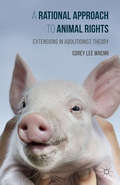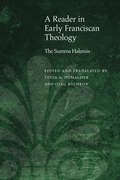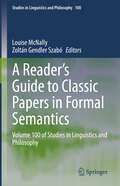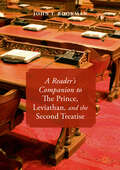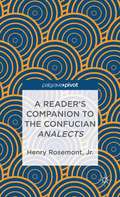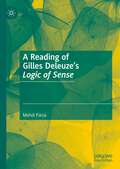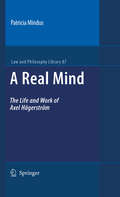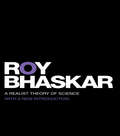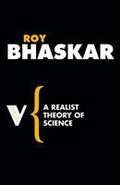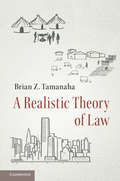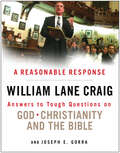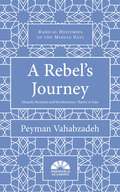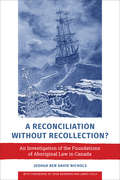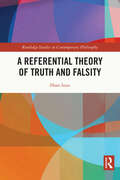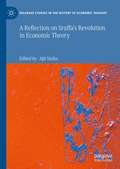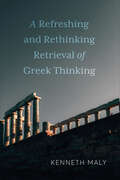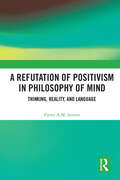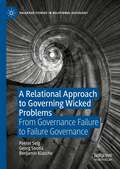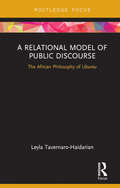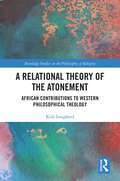- Table View
- List View
A Radical Philosophy of Saint Paul (Insurrections: Critical Studies in Religion, Politics, and Culture)
by Stanislas BretonStanislas Breton's A Radical Philosophy of Saint Paul, which focuses on the political implications of the apostle's writings, was an instrumental text in Continental philosophy's contemporary "turn to religion." Reading Paul's work against modern thought and history, Breton helped launch a reassessment of Marxism, introduce secular interpretations of biblical and theological traditions, develop "radical negativity" as a critical category, and rework modern political ideas through a theoretical lens. Newly translated and critically situated, this edition takes a fresh approach to Breton's classic work, reacquainting readers with the remarkable ways in which an ancient apostle can reset our understanding of the political. Breton begins with Paul's biography and the texts of his conversion, which challenge common conceptions of identity. He broaches the question of allegory and divine predestination, introduces the idea of subjectivity as an effect of power, and confronts Paul's critique of Law, which leads to an exploration of the logics and limits of agency and power. Breton develops these and other insights in relation to Paul's subversive reflections on the crucified messiah, which challenge meaning and reason and upend our current world order. Neither a coherent theologian nor a stable humanist, Breton's Paul becomes a fascinating figure of excess and madness, experiencing a kind of being that transcends philosophy, secularity, and religion.
A Rasa Reader: Classical Indian Aesthetics (Historical Sourcebooks in Classical Indian Thought)
by Sheldon PollockFrom the early years of the Common Era to 1700, Indian intellectuals explored with unparalleled subtlety the place of emotion in art. Their investigations led to the deconstruction of art's formal structures and broader inquiries into the pleasure of tragic tales. Rasa, or taste, was the word they chose to describe art's aesthetics, and their passionate effort to pin down these phenomena became its own remarkable act of creation.This book is the first in any language to follow the evolution of rasa from its origins in dramaturgical thought—a concept for the stage—to its flourishing in literary thought—a concept for the page. A Rasa Reader incorporates primary texts by every significant thinker on classical Indian aesthetics, many never translated before. The arrangement of the selections captures the intellectual dynamism that has powered this debate for centuries. Headnotes explain the meaning and significance of each text, a comprehensive introduction summarizes major threads in intellectual-historical terms, and critical endnotes and an extensive bibliography add further depth to the selections. The Sanskrit theory of emotion in art is one of the most sophisticated in the ancient world, a precursor of the work being done today by critics and philosophers of aesthetics. A Rasa Reader's conceptual detail, historical precision, and clarity will appeal to any scholar interested in a full portrait of global intellectual development. A Rasa Reader is the inaugural book in the Historical Sourcebooks in Classical Indian Thought series, edited by Sheldon Pollock. These text-based books guide readers through the most important forms of classical Indian thought, from epistemology, rhetoric, and hermeneutics to astral science, yoga, and medicine. Each volume provides fresh translations of key works, headnotes to contextualize selections, a comprehensive analysis of major lines of development within the discipline, and exegetical and text-critical endnotes, as well as a bibliography. Designed for comparativists and interested general readers, Historical Sourcebooks is also a great resource for advanced scholars seeking authoritative commentary on challenging works.
A Rat Is a Pig Is a Dog Is a Boy
by Wesley J. SmithOver the past thirty years, as Wesley J. Smith details in his latest book, the concept of animal rights has been seeping into the very bone marrow of Western culture. One reason for this development is that the term "animal rights" is so often used very loosely, to mean simply being nicer to animals. But although animal rights groups do sometimes focus their activism on promoting animal welfare, the larger movement they represent is actually advancing a radical belief system.For some activists, the animal rights ideology amounts to a quasi religion, one whose central doctrine declares a moral equivalency between the value of animal lives and the value of human lives. Animal rights ideologues embrace their beliefs with a fervor that is remarkably intense and sustained, to the point that many dedicate their entire lives to "speaking for those who cannot speak for themselves." Some believe their cause to be so righteous that it entitles them to cross the line from legitimate advocacy to vandalism and harassment, or even terrorism against medical researchers, the fur and food industries, and others they accuse of abusing animals.All people who love animals and recognize their intrinsic worth can agree with Wesley J. Smith that human beings owe animals respect, kindness, and humane care. But Smith argues eloquently that our obligation to humanity matters more, and that granting "rights" to animals would inevitably diminish human dignity.In making this case with reason and passion, A Rat Is a Pig Is a Dog Is a Boy strikes a major blow against a radically antihuman dogma.
A Rational Approach to Animal Rights: Extensions in Abolitionist Theory
by Corey WrennApplying critical sociological theory, this book explores the shortcomings of popular tactics in animal liberation efforts. Building a case for a scientifically-grounded grassroots approach, it is argued that professionalized advocacy that works in the service of theistic, capitalist, patriarchal institutions will find difficulty achieving success.
A Reader in Early Franciscan Theology: The Summa Halensis (Medieval Philosophy: Texts and Studies)
by Lydia Schumacher and Oleg BychkovA Reader in Early Franciscan Theology presents for the first time in English key passages from the Summa Halensis, one of the first major installments in the summa genre for which scholasticism became famous. This systematic work of philosophy and theology was collaboratively written mostly between 1236 and 1245 by the founding members of the Franciscan school, such as Alexander of Hales and John of La Rochelle, who worked at the recently founded University of Paris.Modern scholarship has often dismissed this early Franciscan intellectual tradition as unoriginal, merely systematizing the Augustinian tradition in light of the rediscovery of Aristotle, paving the way for truly revolutionary figures like John Duns Scotus. But as the selections in this reader show, it was this earlier generation that initiated this break with precedent. The compilers of the Summa Halensis first articulated many positions that eventually become closely associated with the Franciscan tradition on issues like the nature of God, the proof for God’s existence, free will, the transcendentals, and Christology. This book is essential reading for anyone wishing to understand the ways in which medieval thinkers employed philosophical concepts in a theological context as well as the evolution of Franciscan thought and its legacy to modernity.A Reader in Early Franciscan Theology is available from the publisher on an open-access basis.
A Reader's Guide to Classic Papers in Formal Semantics: Volume 100 of Studies in Linguistics and Philosophy (Studies in Linguistics and Philosophy #100)
by Louise McNally Zoltán Gendler SzabóThis volume contains 21 new and original contributions to the study of formal semantics, written by distinguished experts in response to landmark papers in the field. The chapters make the target articles more accessible by providing background, modernizing the notation, providing critical commentary, explaining the afterlife of the proposals, and offering a useful bibliography for further study.The chapters were commissioned by the series editors to mark the 100th volume in the book series Studies in Linguistics and Philosophy. The target articles are amongst the most widely read and cited papers up to the end of the 20th century, and cover most of the important subfields of formal semantics. The authors are all prominent researchers in the field, making this volume a valuable addition to the literature for researchers, students, and teachers of formal semantics.Chapter 19 is available open access under a Creative Commons Attribution 4.0 International License via link.springer.com.
A Reader’s Companion to The Prince, Leviathan, and the Second Treatise
by John T. BookmanMachiavelli, Hobbes, and Locke each sought a new foundation for political order. This book serves as a reader's companion to Machiavelli’s The Prince, Hobbes’s Leviathan, and Locke’s Second Treatise written for graduate students and scholars seeking a fuller understanding of these classic texts. How do these philosophers respond to perennial questions such as why anyone is ever obligated to obey a government and whether there are any limits to such an obligation. In this book, Bookman begins by sorting out the hermeneutical controversy between textualists and contextualists, offers a chapter-by-chapter commentary on the texts punctuated by questions for the reader’s reflection, and finally suggests a firmer foundation for a theory of political obligation than Hobbes’s and Locke’s consent theories. Also included are bibliographical essays keyed to select bibliographies, providing readers with a wide-ranging, critical review of the secondary literature. Intended to be read alongside the primary work, the work is a full intellectual, critical, and bibliographical history, as well as a fresh examination of three classic texts in political theory and philosophy.
A Reader’s Companion to the Confucian Analects
by Henry Rosemont Jr.Readers of the Analects of Confucius tend to approach the text asking what Confucius believed; what were the views that comprise the 'ism' appended to his name in English? A Reader's Companion to the Confucian Analects suggests a different approach: he basically taught his students not doctrines, but ways for each of them to find meaning and purpose in their lives, and how best to serve their society. Because his students were not alike, his instruction could not be uniform; hence the largenumber of incompatible readings that have been given to what he said. By providing brief essays, finding lists, background and comparative materials, and historical context, this Companion is not intended as another interpretation of the ancient text, but rather as an aid for contemporary students to develop their own interpretive reading of it, in the hope of thereby aiding them in the search for meaning, purpose, and service in their own lives - as seventy-three generations of Chinese have done.
A Reading of Gilles Deleuze’s Logic of Sense
by Mehdi ParsaThis is a reading of Gilles Deleuze’s masterpiece Logic of Sense. It provides a thorough and systematic reading of Deleuze’s book by focusing on the aspects that are neglected in the existing literature. Specifically, the claim that Deleuze’s Logic of Sense provides a convincing answer for the most important question of the history of philosophy regarding the relation between thought and existence as well as the relation between logic and ontology is defended. The answer is that if thought is related to existence, logic is supposed to be, not the logic of essence, but rather the logic of sense. This analysis s pursued respectively through Deleuze’s readings of Frege, the ancient Stoics, Lewis Carroll, Kant, Lautman, Leibniz, and Melanie Klein.
A Real Mind: The Life and Work of Axel Hägerström (Law and Philosophy Library #87)
by Patricia MindusThis comprehensive presentation of Axel Hägerström (1868-1939) fills a void in nearly a century of literature, providing both the legal and political scholar and the non-expert reader with a proper introduction to the father of Scandinavian realism. Based on his complete work, including unpublished material and personal correspondence selected exclusively from the Uppsala archives, A Real Mind follows the chronological evolution of Hägerström's intellectual enterprise and offers a full account of his thought. The book summarizes Hägerström's main arguments while enabling further critical assessment, and tries to answer such questions as: If norms are neither true nor false, how can they be adequately understood on the basis of Hägerström's theory of knowledge? Did the founder of the Uppsala school uphold emotivism in moral philosophy? What consequences does such a standpoint have in practical philosophy? Is he really the inspiration behind Scandinavian state absolutism?A Real Mind places the complex web of issues addressed by Hägerström within the broader context of 20th century philosophy, stretching from epistemology to ethics. His philosophy of law is examined in the core chapters of the book, with emphasis on the will-theory and the relation between law and power. The narrative is peppered with vignettes from Hägerström's life, giving an insightful and highly readable portrayal of a thinker who put his imprint on legal theory. The appendix provides a selected bibliography and a brief synopsis of the major events in his life, both private and intellectual.
A Realist Theory of Science (Radical Thinkers Ser.)
by Roy BhaskarFirst Published in 2008. Routledge is an imprint of Taylor & Francis, an informa company.
A Realist Theory of Science (Radical Thinkers)
by Roy Bhaskar<i>A Realist Theory of Science</i> is one of the few books that have changed our understanding of the philosophy of science. In this analysis of the natural sciences, with a particular focus on the experimental process itself, Roy Bhaskar provides a definitive critique of the traditional, positivist conception of science and stakes out an alternative, realist position. Since it original publication in 1975, a movement known as ‘Critical Realism’, which is both intellectually diverse and international in scope, has developed on the basis of key concepts outlined in the text. The book has been hailed in many quarters as a ‘Copernican Revolution’ in the study of the nature of science, and the implications of its account have been far-reaching for many fields of the humanities and social sciences.
A Realistic Theory of Law: Pragmatism And A Social Theory Of Law (Oxford Socio-legal Studies)
by Tamanaha Brian Z.Drawing on philosophical pragmatism, Tamanaha formulates a framework for a realistic approach to socio-legal theory. The strengths of this approach are contrasted with that of the major schools of socio-legal theory by application to core issues in this area. Thus Tamanaha explores theproblematic state of socio-legal studies, the relationship between behaviour and meaning, the notion of legal ideology, the problem of indeterminacy in rule following and application, and the structure of judicial decision making. These issues are tackled in a clear and concise fashion whilearticulating a social theory of law that draws equally from legal theory and socio-legal theory. `This book provides a useful, and at times provocative, review of recent developments in legal theory. Because it covers considerable territory, it should be a good addition to one's professional library . . . there is much to commend in this book. It is well written, ably argued, and generallyknowledgeable. It treats controversial topics forthrightly . . . an excellent review of the legal theory literature. . . . It should provide a worthwhile venture into familiar debates rendered from a perspective that owes allegiance to no side. ' Law and Politics Book Review `by any criterion and excellent book . . . Tamanaha has produced a work which should feature as a core text in jurisprudence courses' Oxford Journal of Legal Studies `This is the most significant piece of work for anybody in Jurisprudence, Socio-Legal Studies, or Legal Theory' Neil MacCormick `a rich insight into almost every question legal theory has vexed itself over the past twenty-five years' Stanley Fish
A Reasonable Response: Answers to Tough Questions on God, Christianity, and the Bible
by William Lane Craig Joe GorraFollowers of Jesus need not fear hard questions or objections against Christian belief. In A Reasonable Response, renowned Christian philosopher and apologist William Lane Craig offers dozens of examples of how some of the most common challenges to Christian thought can be addressed, including:Why does God allow evil?How can I be sure God exists?Why should I believe that the Bible is trustworthy?How does modern science relate to the Christian worldview?What evidence do we have that Jesus rose from the dead?Utilizing real questions submitted to his popular website ReasonableFaith.org, Dr. Craig models well-reasoned, skillful, and biblically informed interaction with his inquirers. A Reasonable Response goes beyond merely talking about apologetics; it shows it in action. With cowriter Joseph E. Gorra, this book also offers advice about envisioning and practicing the ministry of answering people&’s questions through the local church, workplace, and in online environments.Whether you're struggling to respond to tough objections or looking for answers to your own intellectual questions, A Reasonable Response will equip you with sound reasoning and biblical truth.
A Reasonable Response: Answers to Tough Questions on God, Christianity, and the Bible
by William Lane Craig Joe GorraFollowers of Jesus need not fear hard questions or objections against Christian belief. In A Reasonable Response, renowned Christian philosopher and apologist William Lane Craig offers dozens of examples of how some of the most common challenges to Christian thought can be addressed, including:Why does God allow evil?How can I be sure God exists?Why should I believe that the Bible is trustworthy?How does modern science relate to the Christian worldview?What evidence do we have that Jesus rose from the dead?Utilizing real questions submitted to his popular website ReasonableFaith.org, Dr. Craig models well-reasoned, skillful, and biblically informed interaction with his inquirers. A Reasonable Response goes beyond merely talking about apologetics; it shows it in action. With cowriter Joseph E. Gorra, this book also offers advice about envisioning and practicing the ministry of answering people&’s questions through the local church, workplace, and in online environments.Whether you're struggling to respond to tough objections or looking for answers to your own intellectual questions, A Reasonable Response will equip you with sound reasoning and biblical truth.
A Rebel's Journey: Mostafa Sho'aiyan and Revolutionary Theory in Iran (Radical Histories of the Middle East)
by Peyman VahabzadehFollowing the 1953 coup that toppled the democratically elected government of Mossadeq and restored the rule of the Shah in Iran, Mostafa Sho&‘aiyan became a key figure on the country&’s militant left. From a life underground he contributed significantly to the study of Iranian history and politics, and developed a unique theory of revolution. A Rebel&’s Journey provides fascinating insights into the life and work of this singular theoretician. Peyman Vahabzadeh sets Sho&‘aiyan&’s thought in the context of his time and place, and explores how his revolutionary theory might contribute to today&’s expanding movements for social justice and liberation.
A Reconciliation without Recollection?: An Investigation of the Foundations of Aboriginal Law in Canada (G - Reference, Information And Interdisciplinary Subjects Ser.)
by Joshua Ben NicholsThe current framework for reconciliation between Indigenous peoples and the Canadian state is based on the Supreme Court of Canada’s acceptance of the Crown’s assertion of sovereignty, legislative power, and underlying title. The basis of this assertion is a long-standing interpretation of Section 91(24) of Canada’s Constitution, which reads it as a plenary grant of power over Indigenous communities and their lands, leading the courts to simply bypass the question of the inherent right of self-government. In A Reconciliation without Recollection, Joshua Ben David Nichols argues that if we are to find a meaningful path toward reconciliation, we will need to address the history of sovereignty without assuming its foundations. Exposing the limitations of the current model, Nichols carefully examines the lines of descent and association that underlie the legal conceptualization of the Aboriginal right to govern. Blending legal analysis with insights drawn from political theory and philosophy, A Reconciliation without Recollection is an ambitious and timely intervention into one of the most pressing concerns in Canada.
A Referential Theory of Truth and Falsity (Routledge Studies in Contemporary Philosophy)
by Ilhan InanThis book proposes a novel theory of truth and falsity. It argues that truth is a form of reference and falsity is a form of reference failure. Most of the philosophical literature on truth concentrates on certain ontological and epistemic problems. This book focuses instead on language. By utilizing the Fregean idea that sentences are singular referring expressions, the author develops novel connections between the philosophical study of truth and falsity and the huge literature in the philosophy of language on the notion of reference. The first part of the book constructs the author’s theory and argues for it in length. Part II addresses the ways in which the theory relates to and is different from some of the basic theories of truth. Part III takes up how to account for the truth of sentences with logical operators and quantifiers. Finally, Part IV discusses the applications and implications of the theory for longstanding problems in philosophy of language, metaphysics and epistemology. A Referential Theory of Truth and Falsity will appeal to researchers and advanced students working in philosophy of language, epistemology, metaphysics, and linguistics.
A Reflection on Sraffa’s Revolution in Economic Theory (Palgrave Studies in the History of Economic Thought)
by Ajit SinhaThis book presents a substantial collection of essays from a wide range of well respected scholars addressing several aspects of Piero Sraffa’s economics in light of continuing controversies over the interpretation that should be placed on his work. It moves beyond extant scholarship with an added emphasis on the philosophical dimension of Sraffa’s seminal work, Production of Commodities by Means of Commodities. Contributors probe new ways of thinking about the political economy of Sraffa and in doing so, alongside the comments to each contribution by other scholars, provide a cutting edge debate and discussion on non-mainstream economic theory.This book will be of interest to academics and advanced graduate students in economics, with additional interest from scholars in philosophy and the methodology of science.
A Refreshing and Rethinking Retrieval of Greek Thinking (New Studies in Phenomenology and Hermeneutics)
by Kenneth MalyA Refreshing and Rethinking Retrieval of Greek Thinking presents a rereading and rethinking of Greek philosophy in an attempt to retrieve an essential thread in Greek thinking that has been covered over for many centuries – beginning with the late Greeks, then Christianity, and then rationalism – and misrepresented by mistranslations from the seventeenth century onward . Using Heidegger’s work with Greek thinking as a springboard, the book shows how the covering over of this essential thread happened. Kenneth Maly provides a frame by which those not trained in philosophy and phenomenology of experience can grasp the wider import of this rethinking of Greek philosophy. The book delves deep into key questions, preparing readers for extensive and more technical work with the key Greek words and their meanings, hidden for centuries. It includes a significant investigation of how this task requires a different way of language, how early Western thinking mirrors non-Western Daoism and Buddhism, and how quantum physics gets to the same place in its "philosophy," with an emphasis on the work of David Bohm. In doing so, the book reveals how Daoism, Buddhism, the quantum potential of quantum physics, and Heidegger’s being-beyng are all mirrored in Greek philosophy, above all in early Greek thinking.
A Refutation of Positivism in Philosophy of Mind: Thinking, Reality, and Language
by Pieter A.M. SeurenThis book argues that positivism, though now the dominant paradigm for both the natural and the human sciences, is intrinsically unfit for the latter. In particular, it is unfit for linguistics and cognitive science, where it is ultimately self-destructive, since it fails to account for causality, while the mind, the primary object of research of the human sciences, cannot be understood unless considered to be an autonomous causal force. Author Pieter Albertus Maria Seuren, who died shortly after this manuscript was finished and after a remarkable career, reviews the history of this issue since the seventeenth century. He focuses on Descartes, Leibniz, British Empiricism and Kant, arguing that neither cognition nor language can be adequately accounted for unless the mind is given its full due. This implies that a distinction must be made—following Alexius Meinong, but against Russell and Quine—between actual and virtual reality. The latter is a product of the causally active mind and a necessary ingredient for the setting up of mental models, without which neither cognition nor language can function. Mental models are coherent sets of propositions, and can be wholly or partially true or false. Positivism rules out mental models, blocking any serious semantics and thereby reducing both language and cognition to caricatures of themselves. Seuren presents a causal theory of meaning, linking up language with cognition and solving the old question of what meaning actually amounts to. Key Features: Provides a fundamental reassessment of the methodology of the humanities Makes a distinctive contribution to the conceptual foundations of linguistics and philosophy of mind Explores the philosophical and historical origins of central developments in the human sciences in the past 100 years Offers a new approach to ontology and epistemology in the scientific study of the creative human mind and its products.
A Refutation of Positivism in Philosophy of Mind: Thinking, Reality, and Language
by Pieter A.M. SeurenThis book argues that positivism, though now the dominant paradigm for both the natural and the human sciences, is intrinsically unfit for the latter. In particular, it is unfit for linguistics and cognitive science, where it is ultimately self-destructive, since it fails to account for causality, while the mind, the primary object of research of the human sciences, cannot be understood unless considered to be an autonomous causal force. Author Pieter Albertus Maria Seuren, who died shortly after this manuscript was finished and after a remarkable career, reviews the history of this issue since the seventeenth century. He focuses on Descartes, Leibniz, British Empiricism and Kant, arguing that neither cognition nor language can be adequately accounted for unless the mind is given its full due. This implies that a distinction must be made—following Alexius Meinong, but against Russell and Quine—between actual and virtual reality. The latter is a product of the causally active mind and a necessary ingredient for the setting up of mental models, without which neither cognition nor language can function. Mental models are coherent sets of propositions, and can be wholly or partially true or false. Positivism rules out mental models, blocking any serious semantics and thereby reducing both language and cognition to caricatures of themselves. Seuren presents a causal theory of meaning, linking up language with cognition and solving the old question of what meaning actually amounts to.Key Features: Provides a fundamental reassessment of the methodology of the humanities Makes a distinctive contribution to the conceptual foundations of linguistics and philosophy of mind Explores the philosophical and historical origins of central developments in the human sciences in the past 100 years Offers a new approach to ontology and epistemology in the scientific study of the creative human mind and its products.
A Relational Approach to Governing Wicked Problems: From Governance Failure to Failure Governance (Palgrave Studies in Relational Sociology)
by Peeter Selg Georg Sootla Benjamin KlascheThe book initiates a relational turn in policy making and governance by developing further relational political analysis and by taking relational thinking to bear on not just analytic/descriptive issues, but also to normative/prescriptive issues. The need for such a turn, this book argues, comes from the ever-increasing relevance of addressing the so-called wicked problems of governance like climate change, COVID-19 kinds of pandemics, global economic recessions and refugee crises. The book argues for a need to rethink governance as a process from the relational point of view to spur its potential for addressing these problems. What needs to be rethought is not so much the specific tools or resources of governance, but the very issue of whether governance should be seen in terms of tools and resources in the first place. This book contributes to this discussion by consolidating the relational approaches to governance thus far and by taking them to a next – normative/prescriptive – level.
A Relational Model of Public Discourse: The African Philosophy of Ubuntu (Routledge Focus on Communication Studies)
by Leyla Tavernaro-HaidarianContemporary democratic discourses are frequently, though not exclusively, characterized by an attitude of ‘pro and con' where the aim is to persuade others, a jury or an audience, of what is right and what is wrong. Challenging such procedures, this book teases out an alternative model of public discourse that is based in collaboration and deliberation. The African philosophy of ubuntu offers valuable insights in this regard as it implies relational notions of power that contrast and complement individualist facets. It provides the space to think and speak in ways that support harmonious and cohesive societal structures and practices. The book’s model of communication rests on the premise that the various interests of individuals and groups, while richly diverse, can be conceived of as profoundly bound-up rather than incompatible. In this way communication enables broader lines of action and a wider scope for achieving diversity and common ground.
A Relational Theory of the Atonement: African Contributions to Western Philosophical Theology (Routledge Studies in the Philosophy of Religion)
by Kirk LougheedWhile the atonement is a central component of Christianity, there is little agreement in the tradition about how it should be understood. This book develops and defends a novel relational theory of atonement inspired by African relational ethics. This book brings important themes from African ethics into conversation with the contemporary philosophical literature on the atonement. The author employs an African relational ethic that says an act is right inasmuch as it is friendly where friendliness is understood as identifying with others and expressing solidarity with them. This relational ethic sheds new light on the problem of sin, by emphasizing the relational disharmony it produces between God and humans. When applied to the Atonement, the passion and death of Christ can be understood as an ultimate act of friendliness in reconciling humanity to God. The author also explores questions about the nature of justice, forgiveness, and reconciliation. He shows how constructive punishment ought to be included in geuine forms of reconciliation and as such how punishment can be part of his relational theory of the atonement. The last part of the book develops alternative theories of the atonement based on two important African normative theories located in normative personhood and in life force. Overall, the book makes the case that the relational theory of the atonement should be considered as a serious competitor to longer-established Western theories. A Relational Theory of the Atonement will appeal to scholars and advanced students interested in philosophy of religion, philosophical theology, African philosophy, and comparative philosophy.
